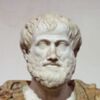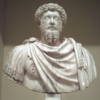Emily R. Wilson
Author of The Greatest Empire: A Life of Seneca
About the Author
Works by Emily R. Wilson
Associated Works
Homer's Daughters: Women's Responses to Homer in the Twentieth Century and Beyond (Classical Presences) (2019) — Contributor — 2 copies
Tagged
Common Knowledge
- Canonical name
- Wilson, Emily R.
- Legal name
- Wilson, Emily Rose Caroline
- Other names
- Wilson, Emily
Wilson, Emily RC - Birthdate
- 1971
- Gender
- female
- Nationality
- UK
- Birthplace
- Oxford, UK
- Places of residence
- England, UK
USA - Education
- University of Oxford (Balliol College)
University of Oxford (Corpus Christi College)
Yale University - Occupations
- Professor of Classics
- Relationships
- Wilson, Bee (sister)
Duncan-Jones, Katherine (mother)
Wilson, A.N. (father) - Organizations
- University of Pennsylvania
- Awards and honors
- Fellow of the American Academy in Rome
MacArthur Fellowship (2019)
Members
Reviews
Lists
Awards
You May Also Like
Associated Authors
Statistics
- Works
- 7
- Also by
- 11
- Members
- 299
- Popularity
- #78,483
- Rating
- 4.0
- Reviews
- 2
- ISBNs
- 25
- Languages
- 4
- Favorited
- 1















The book can properly be summarized as a literary biography, and I feel like I would have benefited if I had more exposure to the primary materials (though this biography has made me want to pick up Anger, Mercy, and Revenge again). In fact, the book reads like an extended thesis on Seneca's psyche through his literary work, but this is a positive not a negative. Wilson is generally nuanced when it comes to historical description (for example, she does not take a stance on if Seneca actually committed the adultery he was exiled for, laying out evidence on both sides without weighing in herself) and discusses the various sources for general historical claims. Wilson places Seneca's major works in the context of the phase of life he was in and the historical context. For example, Wilson sees On Benefits, as Seneca's attempt to understand and explain his reaction to Nero's murder of Agrippina, who recalled Seneca from exile (Seneca argues how certain benefits are not really benefits because he is indifferent to them, and the subtle obligations that benefits create). Wilson interprets On Anger, and On Mercy as Seneca's attempts to guide a young Nero (On Mercy cleverly praising and guiding at the same time by praising qualities that Seneca claimed already existed in Nero). Seneca's works on nature are interpreted as an attempt to get away from courtly matters by zooming out into the universe, and his tragedies are treated as semi-autobiographical. However, Wilson does not entirely read Seneca literally. A prevailing theme throughout the book is the "theatricality" of Seneca's writing, Seneca writes in a sort of doublespeak (which Wilson argues is result of courtly life at this time, where the Emperor still paid homage to traditional Roman power structures while everyone knew that the emperor had all the power) and in ways the writing is contrived. For example, while in exile, Seneca wrote his mother a letter, which was really meant to be read by the general public. In it, he effusively praises his mother's chastity (Wilson argues this is an echo of the adultery charge that was leveled against Seneca), and complains about his exile in a horrible rocky island without civilization (incidentally earning the ire of Corsicans forever). Wilson notes that even at Seneca's time, there would have been a thriving civilization on the island, and Seneca was allowed to bring a retinue. Wilson notes that several times Seneca ratherly dramatically claims to have desired to want to kill himself, but was only stopped by his selfless thoughts of leaving his loved ones behind (first his father, than his wife).
Another prevailing theme of the biography are the charges of hypocrisy against Seneca. Wilson does not try to rationalize or justify the various times that the wise Seneca seems particularly pathetic. For example, Wilson criticizes how Seneca groves before Claudius's freedman in an attempt to be recalled from exile, only to lambast Claudius in Pumpkinification when Claudius passes away. Wilson attempts to explain the charge that Seneca claimed to not have cared about wealth while actually amassing a huge personal fortune under Nero. Wilson argues that to the stoics, wealth was an indifference, that the stoics believed that wealth was morally neutral, and all things equal it was better to have it than not have it. Nevertheless, Wilson is critical of Seneca's lack of perspective when it came to slavery or vast wealth inequality (while recognizing that few others cared either at the time). Ultimately, Wilson paints a sympathetic portrayal of Seneca, as a man of many contradictions (trying to assert control over his own life, and enjoying solitude but also constantly gravitating towards the center of power in the grandest stage of the time) but striving to do better (the stoics believed that perfect sagehood was achievable, though Seneca always considered himself on the path to this sagehood and not at the destination). Wilson starts with a telling of Seneca's death. Forced to commit suicide by Nero, Seneca first slits his wrists, but does not die. Seneca then drinks hemlock (following his hero Socrates) but this does not work either. Seneca finally steps into a hot bath, where the steam suffocates him. While Seneca claims to have spent his entire life preparing to die, his death does not go according to plan. However, that is what makes his life so interesting, the gap between the reality and the idealism, and what makes Wilson's biography worth reading. In an epilogue, Wilson discusses Seneca's posthumous influence, including on early christian thought (to the point where someone forged letters between Seneca and Paul and claimed his death was a disguised baptism) to thinkers such as Montaigne.… (more)